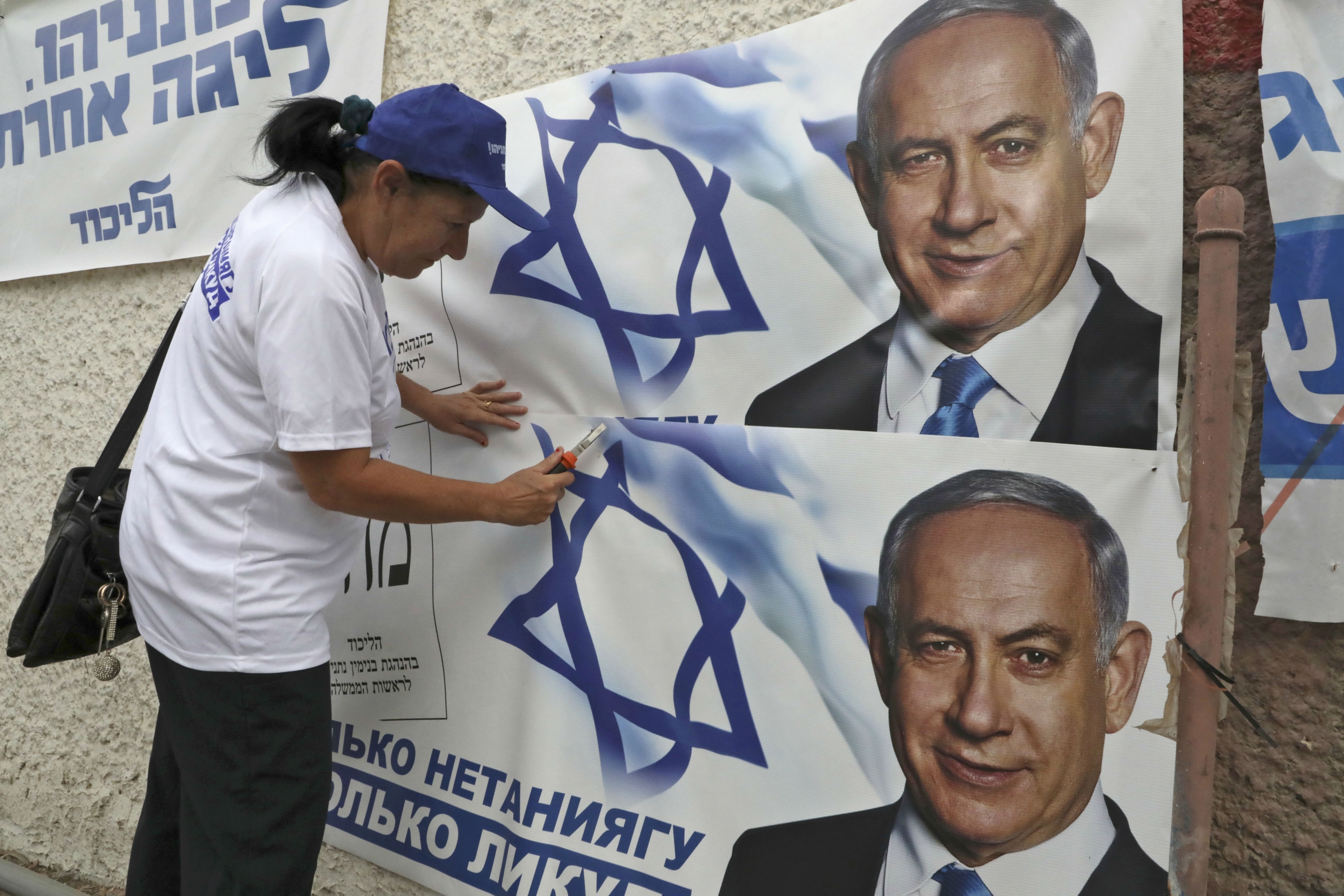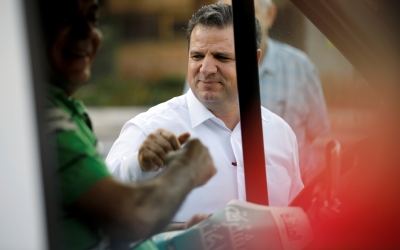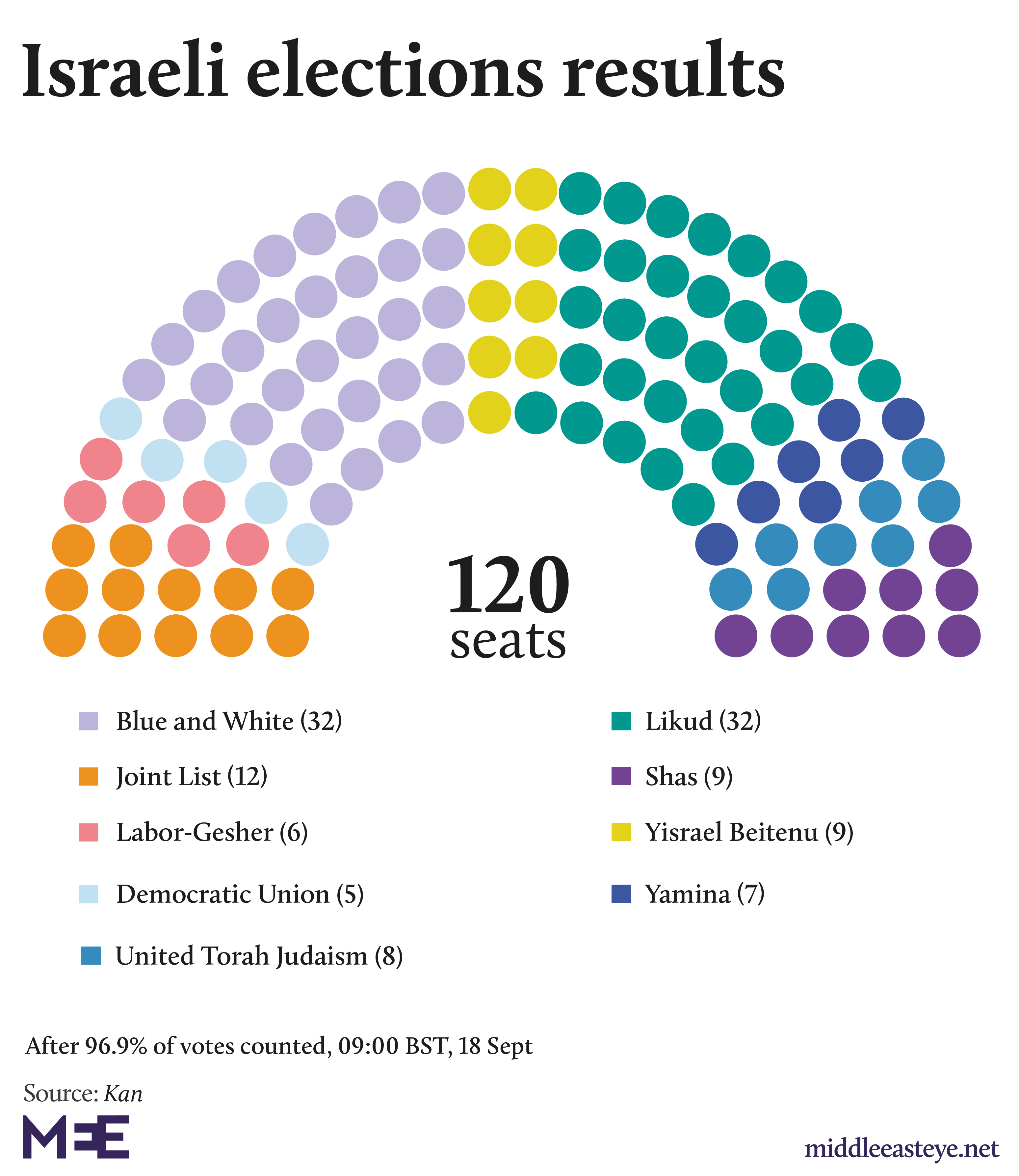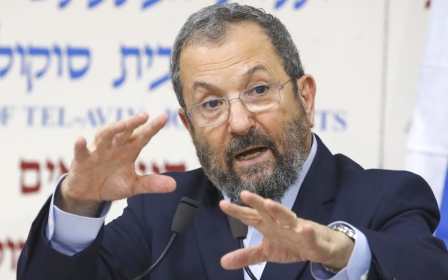Whatever comes next, the Netanyahu era as we know it is over

The most expected outcome of Tuesday elections in Israel has somehow become the biggest surprise.
The tie between Prime Minister Benjamin Netanyahu’s Likud party and Benny Gantz’s Blue and White on about 33 seats each is a reflection of longtime division of Israeli society into two camps.
Yet even before Israelis know who their next PM is going to be, even before we know if the Netanyahu era is over, all political analysts agree the days of Netanyahu as we know him - “the magician”, the omnipotent leader of ”another league” - are certainly over.
So might be Netanyahu’s “immunity coalition” of far right-wing and Ultra-Orthodox parties, the much-coveted government he yearns for before facing indictment. The prime minister faces a hearing in his corruption cases in two weeks’ time.
Likud members, reluctant to talk openly and ordered to keep quiet, are failing to decide if Netanyahu is still a valuable asset or just a burden to his party.
They also know their opinion does not really matter at this point.
The ruthless premier, who almost dragged Israel into a war in the Gaza Strip a few days ago to postpone the elections (and was legally forbidden to do so), does not have many options but not many red lines either.
“'Wag the Dog’, the movie where a Hollywood director is hired to stage a fake war to save a failing presidential candidate, is a childish version of what Netanyahu is capable of doing,” a disgusted ex-general tells Middle East Eye, only half-joking.
On a more serious note, the prevailing assumption among analysts is that Netanyahu is willing to go into a unity government with his opponents for the first two years of the four-year term, to conduct his legal cases from prime minister’s office.
After a second round of bloody, brutal, racist and poisonous election campaigns and their undecided result, Israeli society is left bleeding.
Poetic justice
Not all the news for Israel is bad. Had Netanayahu won, Israeli democracy would have taken a fatal blow. For now at, least, it is being kept on a life-support machine.
If you look for poetic justice, focus on two developments: the far-right ultra-radical, racist and anti-Arab Jewish Power party is out - and did not win enough votes to secure the four seats that could have handed Netanyahu his majority.
On the other hand, with 12 seats of the Palestinian Joint List is very much in.
The party described by Netanyahu's campaign as traitors about to "annihilate" all Jews is the third-largest in Israel, and in almost every scenario its leader will become the head of the opposition, the one obliged by law to hold weekly meeting with the prime minister and get detailed reports on all issues involving security and military actions.
If Avigdor Lieberman, head of Yisrael Beiteinu party, goes down in history as the forefather of the Joint List, after obliging the Palestinian parties to join forces when he raised the electoral threshold to keep Arabs out of the parliament, Netanyahu will be remembered as the one whose dangerously vicious campaign brought even indifferent Arab voters to the voting booths.
His racist rhetoric and campaign played a huge role in boosting the Joint List’s presence in the Knesset.
Now Lieberman plays, as expected, an even more dramatic role: the kingmaker who is about to impose a unity government.
That is what he said before the elections, and it is what he said the morning after. His projected nine seats (a significant improvement over his five seats in April’s election) have the power to decide the future of Israel.
At the doorstep of his house in the illegal settlement of Hanokdim, he repeated his message plus a word to President Reuven Rivlin, a key person in the coalition game.
“The only option is a national-liberal unity government with Likud, Gantz and Yisrael Beiteinu. There is no chance to form a coalition with the Arab party, no chance to form a government with the Orthodox parties as they are now, no chance to hold a third round of elections as well,” he said.
“It is now up to President Rivlin to precipitate the process and take the necessary steps to form this unity government as fast as possible. We won’t budge an inch.”
How to remove Netanyahu?
Sounds relatively simple - only it is not.
Prior to the elections, Netanyahu rejected the very notion of a unity government and vowed to form a coalition with his “natural partners” the Orthodox and far-right parties.
Gantz, on the other hand, preached a unity government with Likud, but without Netanyahu as he faces three corruption cases.
Likud members vow not to desert Netanyahu and crown a new leader. “Likud does not stab its leaders in the back,” said Culture Minister Miri Regev. “This is not in the DNA of our party.”
It is true, but tricky. Just a couple of weeks ago all Likud MPs signed a declaration of loyalty to Netanyahu.
This is what they are bound to say openly. It is not necessarily what they think but dare not say.
“Likud members do understand it is time to say goodbye to Bibi,” Blue and White’s Zvi Hauser, once Netanyahu’s secretary of cabinet and close ally, tells MEE.
MP Michael Biton, who is also from the same party and known to be close to Gantz, says something vague enough to leave room for interpretation: Netanyahu can remain head of the Likud party and, if proven innocent, can come back after two years of Gantz in office and serve as PM.
Likud members do understand it is time to say goodbye to Bibi'
- Zvi Hauser, Blue and White
Confused? Rightfully so. All Israelis want to shorten the agony, but Netanyahu’s personality and his desperate need for an “immunity coalition” might prolong the process and legally drag it out until even Christmas.
The Israeli Jewish left deserves a word. The marriage of Meretz and Ehud Barak in the Democratic Union won only five seats. The Labor party has six. Gone is the discourse of peace, two states.
“Meretz has no place in a unity government, we aim at a new Jewish-Arab party,” former MP Mossi Raz, who ran as a Democratic Union candidate, tells MEE.
“I have reason to believe parts of the Arab Joint List might join us.”
That, of course, remains to be seen. In the immediate future, all eyes are still focused on Netanyahu.
Netanyahu’s expertise is to constantly declare some kind of state of emergency. He obviously obeys by the theory of Carl Schmitt, the political theorist who claimed that he who rules is the one who declares a state of emergency.
The prime minister made it into an art. Be it Ahmad Tibi or Iran, any opponent can be the cause for a state of emergency. Today, Lieberman has appropriated the system.
“Israeli security and economy are in a state of emergency,” he said. “That requires a speedy formation of a new government.”
That might be his way to facilitate both sides to make the necessary concessions to create a unity government. With Netanyahu or without him.
Lieberman will not shed a tear if the latter scenario materialises.
Middle East Eye propose une couverture et une analyse indépendantes et incomparables du Moyen-Orient, de l’Afrique du Nord et d’autres régions du monde. Pour en savoir plus sur la reprise de ce contenu et les frais qui s’appliquent, veuillez remplir ce formulaire [en anglais]. Pour en savoir plus sur MEE, cliquez ici [en anglais].







